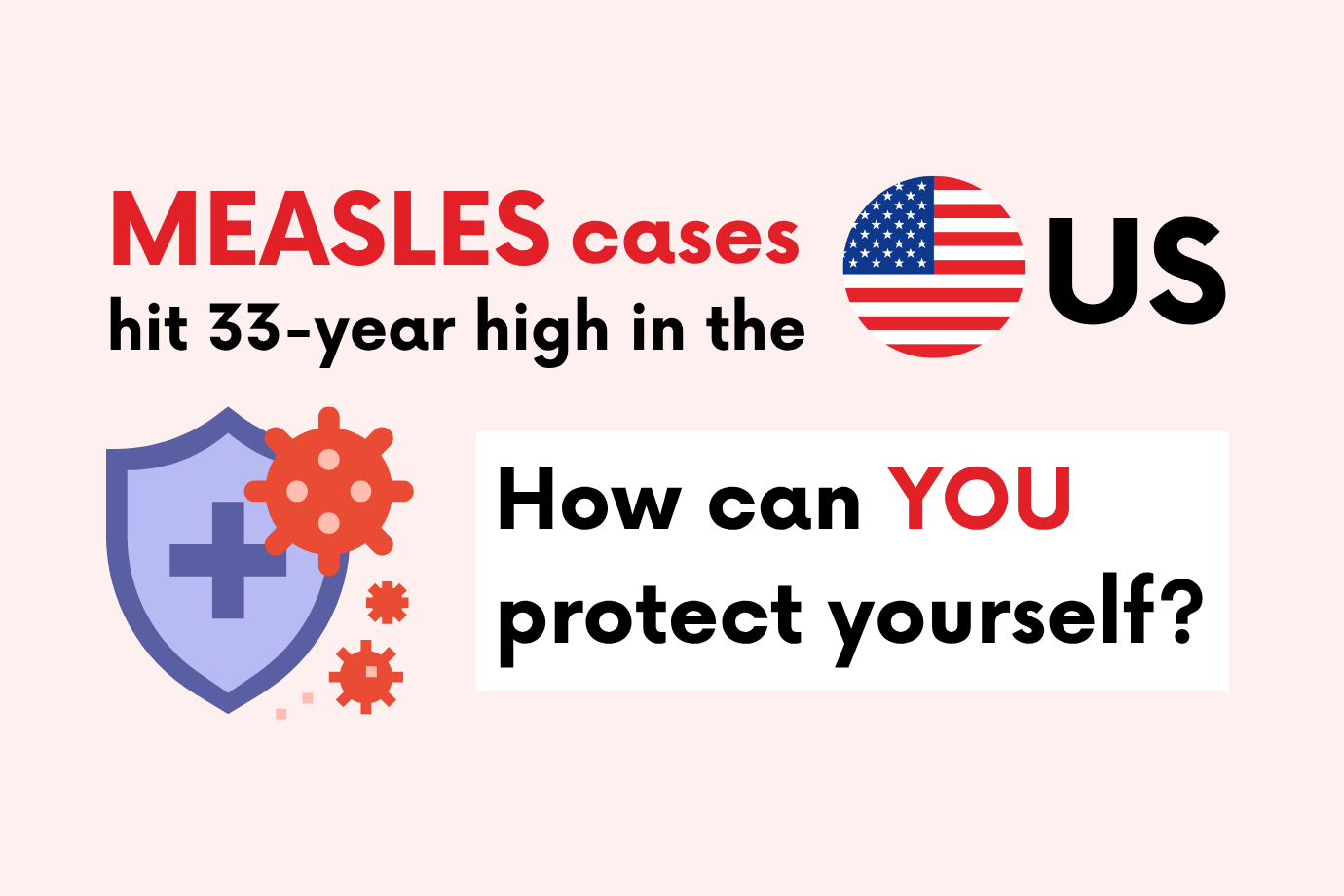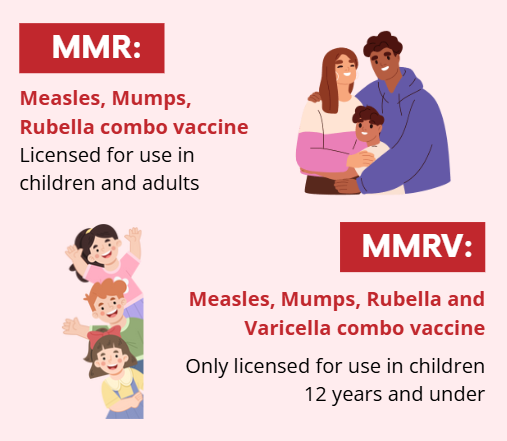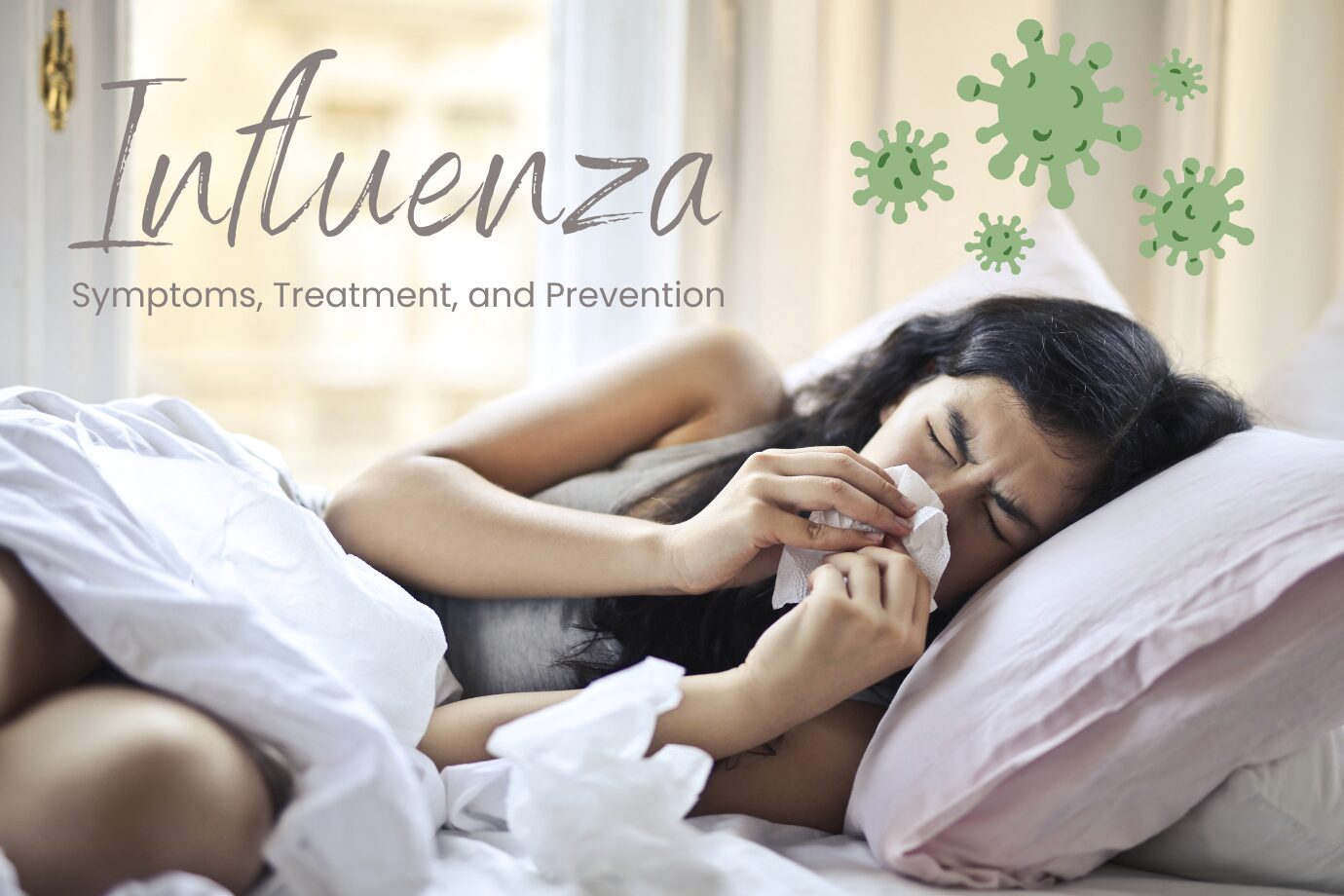
Health Resources
- Home
- Health Resources
- Measles Outbreak 2025
Measles Outbreak 2025

The United States recently recorded its worst measles outbreak in 33 years, with nearly 1,300 confirmed cases as of July 2025. This resurgence is striking, given that measles was declared eliminated in the U.S. back in 2000, thanks to high vaccination rates. However, growing anti-vaccine sentiment has led to a steady climb in the number of reported measles cases, especially in neighbourhoods with lower vaccination rates.
Similar large-scale outbreaks have been reported in countries such as the UK and Canada. In the first 3 months of 2025, Thailand reported more than 1000 cases and Vietnam reported more than 40,000 suspected cases of measles.
Given that Singapore is a major travel hub, we are also at risk of measles spreading to our shores.
So, what exactly is measles, why is it so dangerous, and most importantly—how can we protect ourselves?
What Is Measles?
Measles is a highly contagious viral disease that occurs worldwide. It is the leading cause of death in children aged 5 years and younger.1
Is Measles Contagious?
Measles is one of the most contagious diseases in the world. Following exposure, about 90% of susceptible individuals will develop measles.2
The measles virus spreads through the air and through direct person-to-person contact (e.g. handshaking). Infectious droplets from an infected patient can remain in the air for up to 2 hours.2
Patients are infectious for about 5 days before the appearance of the rash to 4 days afterward.
Countries with successful vaccination programs have decreased their measles cases by as much as 99%. To prevent outbreaks, at least 85-95% of the population needs to be immune to maintain herd immunity.3
Measles in Singapore
Singapore successfully eliminated measles in 2018 with a strong vaccination program. In 2024, there were only 11 reported cases of measles in Singapore. However, with cases rising globally, Singapore has already seen 10 recorded cases of measles in the first 5 months of this year.
What Happens if you get Measles?
Symptoms of a measles infection include:
- Fever
- Cough and runny nose
- Red eyes
- Rashes
- Tiny painless ulcers on the insides of your cheeks
- Loss of appetite
What are the Complications of Measles?
How is Measles diagnosed?
A diagnosis of measles is most commonly confirmed via a blood test for measles antibodies.
What is the Treatment for Measles?
There is no specific treatment for measles. Doctors usually prescribe medications to help with the symptoms associated with a measles infection. Complications such as lung infections and ear infections can be treated with antibiotics.
How do we Prevent Measles?
Vaccination is the most effective way of protecting yourself from measles. Measles vaccination usually results in long-term immunity. According to the Centre for Disease Control and Prevention (CDC), 2 doses of measles vaccine are 97% effective at preventing measles.
While there is still a small risk of getting measles even after the vaccination, the severity of disease is much milder.
Who should get the Measles Vaccine?
- All adults who have not been vaccinated
- All adults who lack evidence of immunity (a blood test can be done to confirm immunity against measles)
- All children are required to receive the MMR vaccine as part of the National Childhood Immunisation Schedule (NCIS)
What are the types of Measles vaccine?
Measles, Mumps and Rubella (MMR) Combination Vaccine
- Live attenuated vaccine against Measles, Mumps and Rubella
- Licensed for use in children and adults
Measles, Mumps, Rubella and Varicella (MMRV) Combination Vaccine
- Live attenuated vaccine against Measles, Mumps, Rubella and Varicella (Chickenpox)
- Licensed for use in children after 12 months old to 12 years old
Both types of vaccines are given as 2 doses of injections.

What are the Side Effects of the Vaccines?
The side effects of the MMR vaccines are more common with the first dose than the second dose, and include:
- Fever
- Transient rashes
- Lymph node swelling
- Joint pains and aches
- Allergic reaction
- Febrile fits in children (1 in 3000 risk)5
Book an appointment today to find out if you are immune against Measles and protect yourself and your loved ones!
Reference:
- Centers for Disease Control and Prevention (CDC). Global measles mortality, 2000-2008. MMWR Morb Mortal Wkly Rep 2009; 58:1321.
- Centers for Disease Control and Prevention. Epidemiology and Prevention of Vaccine-Preventable Diseases, 12th ed, second printing, Atkinson W, Wolfe C, Hamborsky J (Eds), Public Health Foundation, Washington, DC 2012.
- Katz SL, Hinman AR. Summary and conclusions: measles elimination meeting, 16-17 March 2000. J Infect Dis 2004; 189 Suppl 1:S43.
- Paul Gastanaduy, MD, Penina Haber, et al. Measles. In: Epidemiology and Prevention of Vaccine-Preventable Diseases (The Pink Book), 14th ed, Hall E, Wodi AP, Hamborsky J, Morelli V, and Schillie S (Eds), The Public Health Foundation, Washington, DC 2021.
- Watson JC, Hadler SC, Dykewicz CA, et al. Measles, mumps, and rubella–vaccine use and strategies for elimination of measles, rubella, and congenital rubella syndrome and control of mumps: recommendations of the Advisory Committee on Immunization Practices (ACIP). MMWR Recomm Rep 1998; 47:1.
Author

Dr Amaris Lim
MBBS, MMed (Fam Med), GDip (Sports Med)
Dr Amaris is a Family Physician at Frontier Healthcare with a special interest in Sports Medicine. She also contributes as one of the Core Faculty for the Family Medicine Residency Program with the National University Health System (NUHS). She currently practices at Canberra and Bukit Batok.




